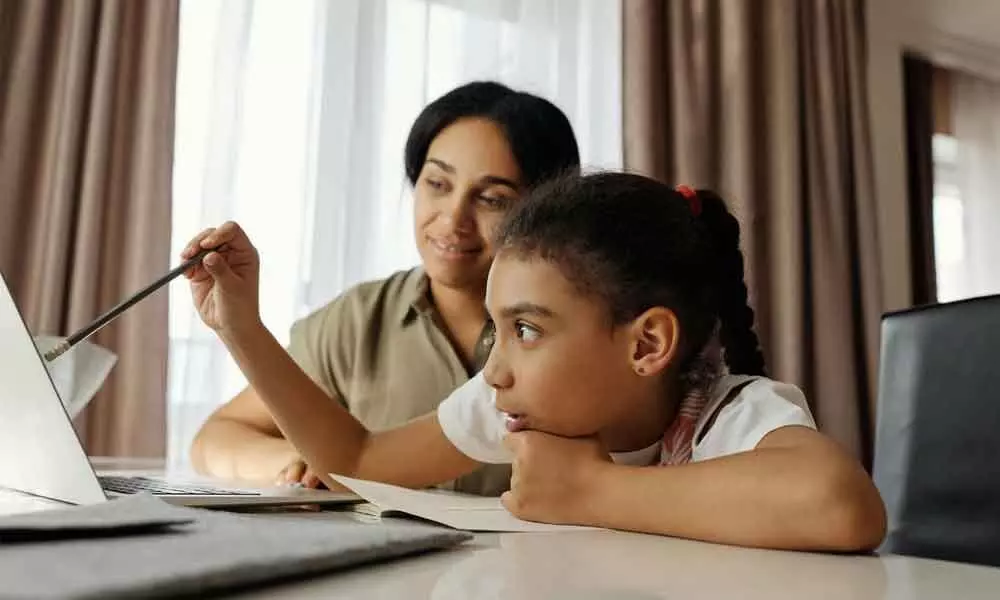Make your home as learning easy place

Make your home as learning easy place
With Covid-19 causing widespread school closures, children across the country are being given alternate resources
With Covid-19 causing widespread school closures, children across the country are being given alternate resources. Temporary solutions being devised for remote education range from online classroom tools like Google Classroom, to Zoom and podcasts by teachers. While parents are adjusting to this new scenario, during this time it's also important to help kids stay focused on learning and avoid overuse of games, social media, and videos. With that in mind, here are tips for mothers as they adjust to the new reality of learning at home.
Digital quarantine
Consider limiting your children's cell phones and tablets until their schoolwork is done satisfactorily, so that it can receive their undivided attention. Apps, games, and messaging features are fun, but they can also prove distracting. It may not be an option for everybody, but ideally, try to give your kids a dedicated device such as a school laptop for maximum online learning.
Make space for learning
Your children will achieve their best work in a quiet, comfortable, and dedicated space devoted to learning. Ideally, this will be a different set-up than where they normally play games or watch television. Keep in mind that children will be in this space for many hours each day, and parents should watch out for any orthopedic issues that may arise related to comfort and posture.
Digital recess
Make sure that your children take plenty of breaks in order to get physical activity and time away from screens. Set alarms similar to those they would encounter at school and encourage them to get up, get some fresh air, go for a walk or bike ride, or have a snack so that they are not sedentary for the entire day.
Facetime
In-person interaction is ideal for kids, but until it's safe for them to return to school, encourage your children to video chat or text message rather than simply scrolling through social media. You don't want your children to feel socially isolated, but at the same time, you want to protect them from becoming wholly reliant upon their devices. Sit your children down for face-to-face conversations about screen time. In order to give them agency, discuss how much time they think is reasonable to spend online and make a "contract," committing to goals for on-screen vs. off-screen hours.
Encourage print and book reading
Overuse of screen time can have adverse impacts on young brains, so it's essential in these special circumstances to be extra careful when it comes to the littlest ones. As much as possible, parents should encourage print and book reading. If available, request textbooks from your child's school along with other print materials in order to offset the amount of online learning they will be doing. Studies show that remote education can be challenging for all ages, but especially young kids, so do whatever you can and always err on the side of caution. Stimulate self-expression by having discussions with your children about what they are doing, and also encourage creative writing and imaginative story telling.
We're all in this together
Remember that you're not alone in this journey. Check in with other parents to see what they've found effective or to ask if they need help. Share your concerns and useful hints. If you need contact information for other parents or resources, reach out to the PTA or your child's school. It is important that we all work together as a community for the good of our children and families.
Don't forget to have fun
Plan the off-screen activities with the complete family. Between school and work obligations, it's rare for parents and children to have this much time together, so turn it into an opportunity for bonding. Write predictions for a TV show that the whole family watches. Organize a tournament, family card games, charades, or chess, or get outside for a hike or walk together in the free time. Follow your community's guidelines about safe behavior and events, of course, but make sure you still find time for fun with your kids.
















